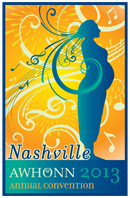Postpartum Psychosis What Happens When the Bough Breaks A Case Presentation
Title: Postpartum Psychosis What Happens When the Bough Breaks A Case Presentation
- Describe 5 symptoms of Postpartum Psychosis
- Identify five components of the Nursing Care Plan of the Postpartum Psychotic patient
- State five risk factors for Postpartum Psychosis.
Case: A 42 year old, G7P3 was admitted at 41 weeks for a stat C/Section for fetal distress. A previous history of depression and two other psychotic episodes existed. The patient had a 9lb healthy infant daughter, who she was breast feeding. The husband stayed with his wife and daughter and other children visited. On day three, the patient walked out of the bathroom with a blank stare, got into bed and started a rocking movement, clutched blankets to her chest and sang out loudly church hymns. The patient would not respond to name and would not eat or drink. At one point, the patient cried that the voices were telling her to kill her infant. A Psychiatric consult was done immediately. Stat Head Cat Scan, metabolic profile, TSH, RPR and 1:1 sitters were ordered. Anti agitation meds were ordered PRN.Results of above tests were normal. A multidiciplinary team of social work, psychiatry, nursing, OB physicians and pastoral care worked to address this patient's symptoms and needs.Six days post C/S, the patient was transferred to a private inpatient psychiatric facility for two weeks. The patient then was treated as an outpatient with regular office visits.
Conclusion: Early identification and treatment of Postpartum psychosis is imperative to the well being of the mother and also her ability to care for her infant and resume her normal activities of daily living. Early and excellent nursing intervention and care played the most important part in ensuing this patient's return to a productive role as a wife and mother!
Keywords: Postpartum psychosis

